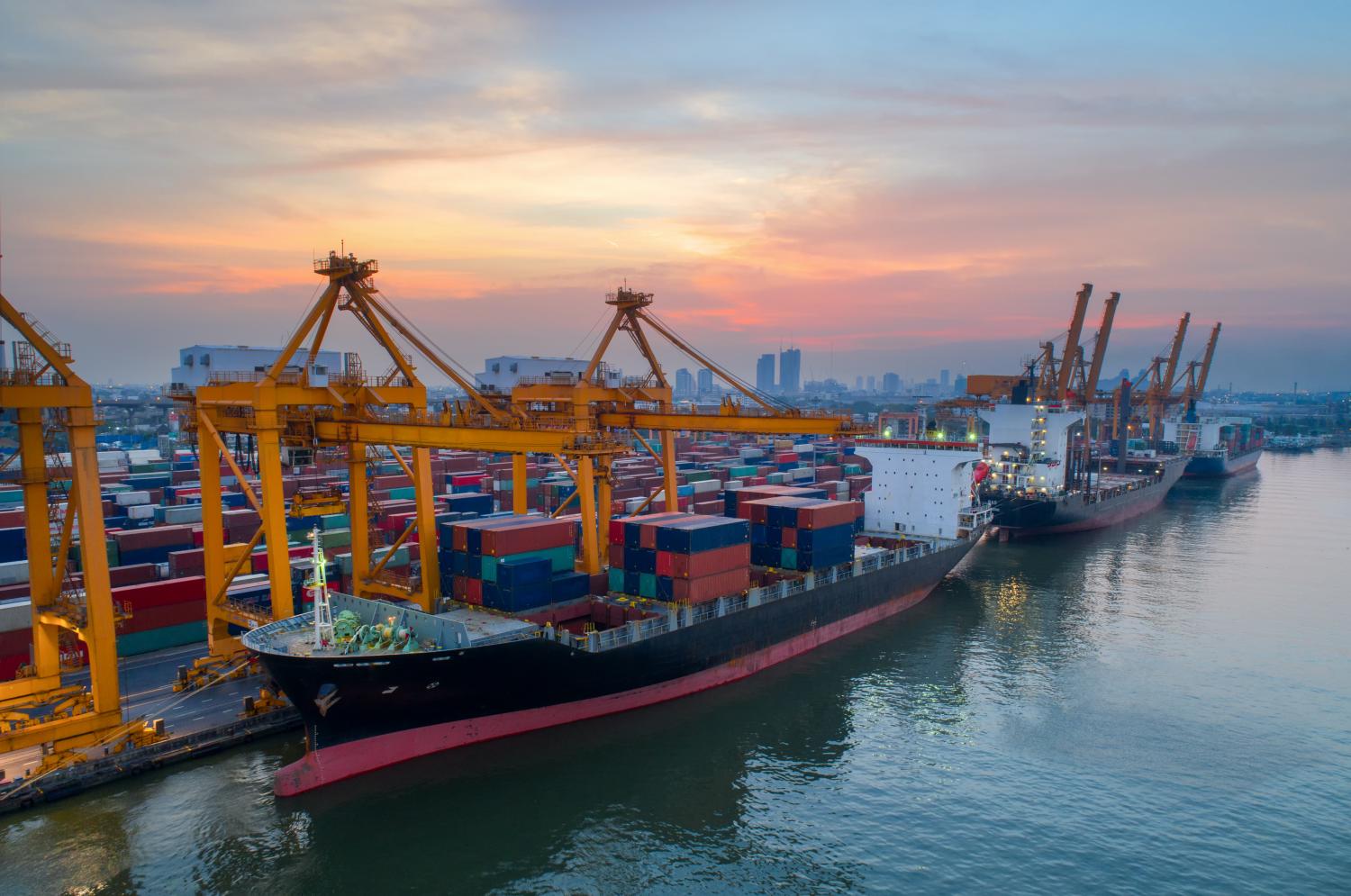
With the Move Forward Party (MFP) still on track to establish a new government, fresh concerns over the next chapter in Thai-Chinese economic relations have surfaced.
Critics cited the MFP's proposal to form a "security alliance" with the US by scaling up the annual Cobra Gold military exercise as one factor that may affect trade between Thailand and China, though the party insists on developing cooperation with Beijing to ensure peace and prosperity.
Under the 23-point memorandum of understanding meant to serve as policy guidelines for the proposed coalition government, the eight parties agree to maintain Thailand's balanced ties with world powers.
As the transition to a new administration progresses, business and investment analysts take a closer look at the country's dependence on China's economy and seek trade and investment opportunities in new markets.

HARDLY DECOUPLED
Sompop Manarungsan, president of the Panyapiwat Institute of Management and a specialist on the Chinese economy, said as long as the Thai economy is based on trade and investment in the agricultural and tourism sectors, it cannot be decoupled from China as it is a global trade powerhouse.
The US is the global hub of the financial and service sectors.
He said even the US has been unable to decouple from China, with trade value between the two countries estimated at US$700 billion a year. In addition, US Secretary of State Antony Blinken's official visit to China last week could open opportunities to explore further trade cooperation.
Thailand and China have a combined trade value of $100 billion, accounting for one-fifth of Thailand's total trade of $500 billion.
Mr Sompop said the Vietnamese economy is even more reliant on China than Thailand, with China accounting for 18% of Vietnam's total exports and 30% of imports. In addition, Asean has been China's largest trading partner for 13 consecutive years.
Thailand has a trade deficit with China, considered a significant negative effect on aggregate trade. However, China views it as a deficit with Thailand if Hong Kong's trade is included.
He said although bilateral trade with China accounted for up to 20% of Thailand's global trade value, the government has expanded access to other markets through trade negotiations to reduce risks from dependence on the mainland's economy.
In terms of foreign direct investment (FDI), Japan accounts for one-third of Thailand's inbound FDI.
China ranked second in terms of FDI last year and will play an increasingly important role in investment, said Mr Sompop.
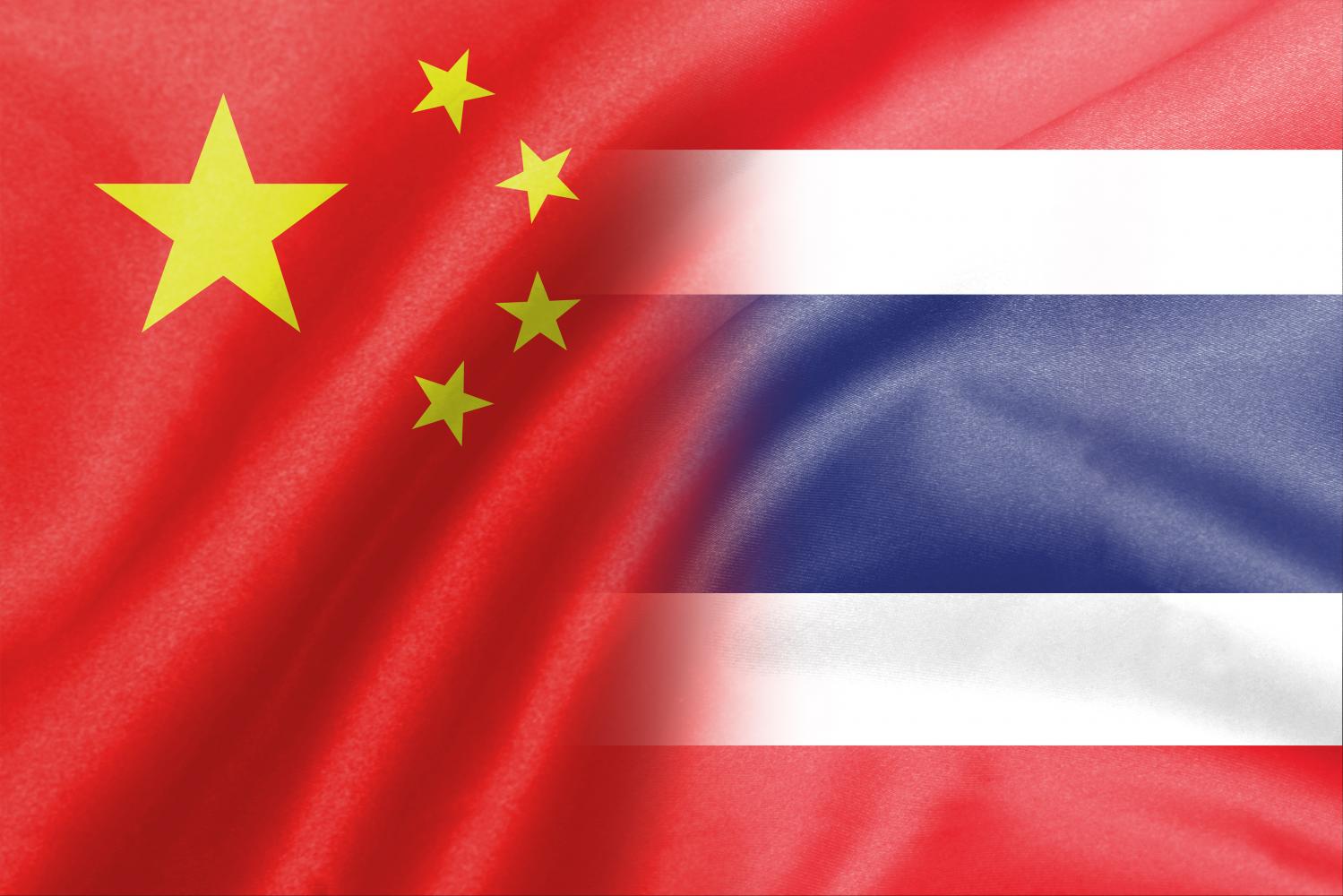
CHINA STILL IN FOCUS
Sanan Angubolkul, chairman of the Thai Chamber of Commerce, said China remains one of Thailand's main trading partners.
China is the market leader in terms of local investment in electric vehicles (EVs), particularly with three Chinese EV companies -- BYD, Changan and Hozon -- investing more than 30 billion baht to establish factories in Thailand.
Recently he said the chamber held discussions with the Foreign Affairs Ministry regarding a plan to conduct roadshows in China, starting in Beijing and then spreading to various provinces.
The goal of the roadshows is to emphasise that Thailand values trade and investment between the two countries, said Mr Sanan, focusing on attracting businesses and understanding their investment preferences in different industries.
Thailand aims to address the needs and concerns of Chinese investors, he said, admitting with the global economic slowdown and sluggish recovery in both countries, as well as ongoing geopolitical issues between the US and China, challenges still exist.
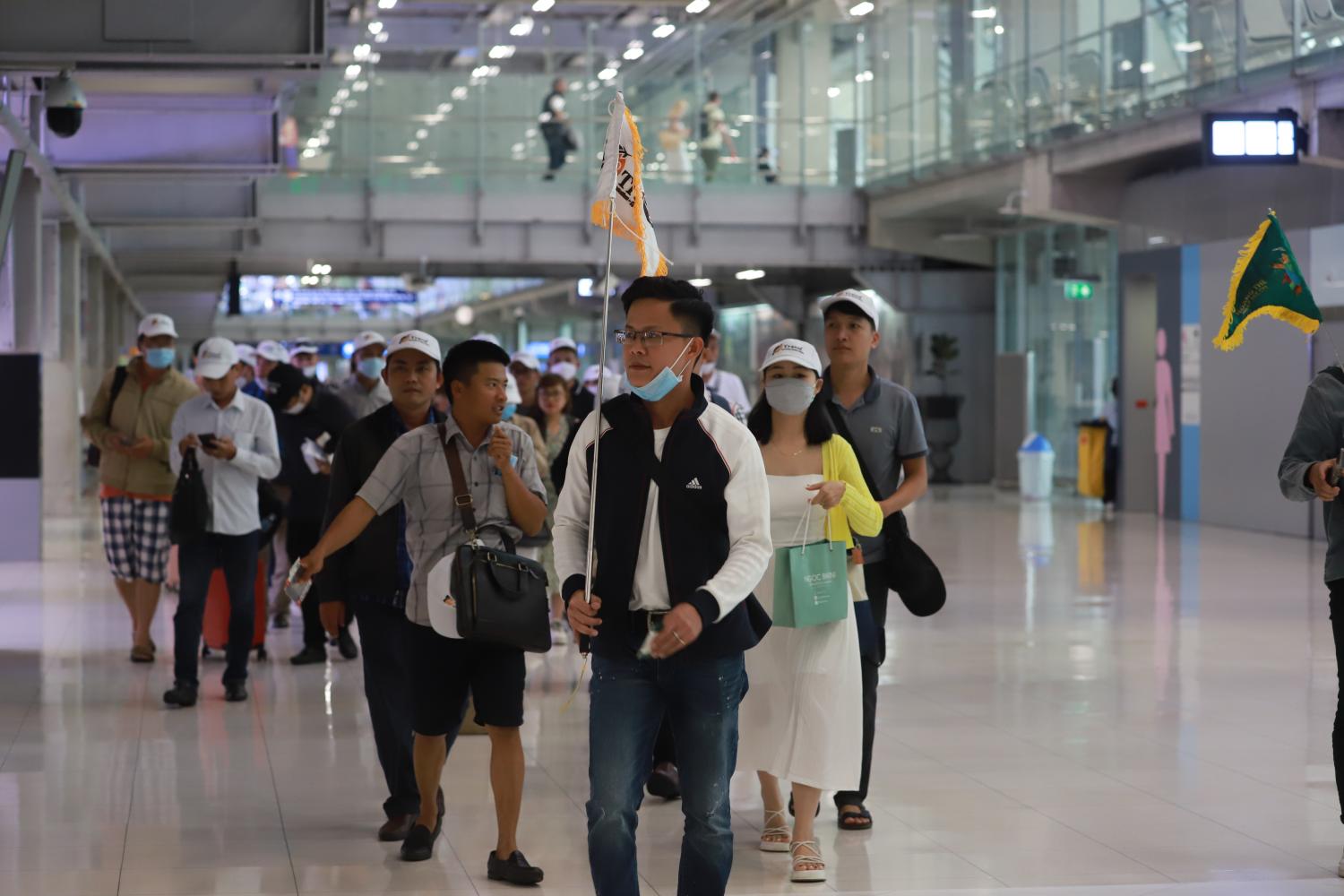
CAUTIOUS MOVE
The Federation of Thai Industries (FTI) wants to see the new government keep its promise on foreign policy that carefully balances ties with the US and China because the Thai economy is closely linked to the supply chains of both countries.
This must be done in tandem with a search for new trading partners, especially the Gulf Cooperation Council (GCC), which comprises Saudi Arabia, Kuwait, the United Arab Emirates, Qatar, Bahrain and Oman, said the federation.
"The business sector hopes the government can manage to maintain a good balance between its international ties amid conflicts between giant economies," said Kriengkrai Thiennukul, chairman of the FTI.
"It's like Thailand is standing between the horns of a water buffalo. No matter which side it falls on, the country will get hurt."
Some other Asian countries are allies with the US and China, so Thailand has to be cautious in implementing foreign policies to avoid a negative impact on its international trade and investment, said Mr Kriengkrai.
The Thai economy remains largely dependent on exports, especially sales of agricultural goods to China.
He said if the new government pursues a controversial stance, such as boosting security ties with the US, this may affect Beijing's perception of Thailand's position, which could eventually have an unwanted economic impact on Thailand.
"It's not easy to find new markets to replace China, now that the world economy is slowing down," said Mr Kriengkrai.
"Europe is still dealing with the impact of the Russia-Ukraine war, high energy prices and rising living costs. Its purchasing power is not as high as that of China."
However, this does not mean Thailand should be complacent with its trade and investments with China and other key trading partners, he said.
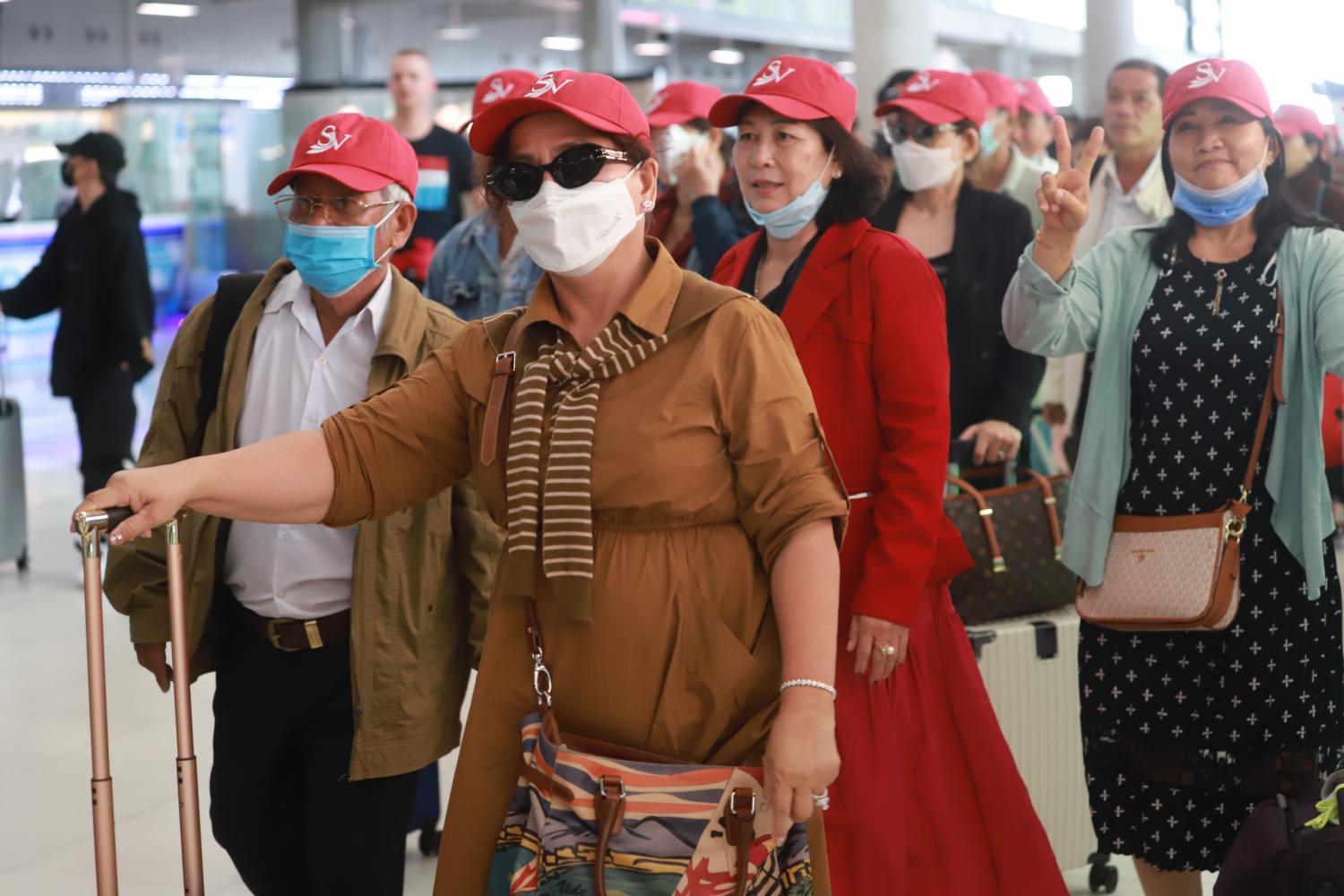
ARAB OASIS
The GCC should be a focus market, especially as Saudi Arabia restored diplomatic ties with Thailand, said Mr Kriengkrai.
Saudi Arabia downgraded ties in 1989 following a row over the theft of $20 million worth of jewels by Kriengkrai Techamong, a Thai janitor working in the palace of a Saudi prince, in what became known as the "Blue Diamond Affair".
The two countries restored full diplomatic ties in January last year when Prime Minister Prayut Chan-o-cha visited the country at the invitation of Saudi Crown Prince Mohammed bin Salman.
With the export sector projected to turn sluggish this year, any opportunity to trade with Saudi Arabia must be promoted, he said.
Chartchai Panichewa, vice-chairman of the FTI, said earlier the federation will ask the Joint Standing Committee on Commerce, Industry and Banking next month to set up a committee to push ahead with a plan to export plants to the GCC.
Saudi Arabia indicated an interest in importing 55 billion plants from 38 species in Thailand.
The country will give the plants to other members of the GCC under its plan to reduce carbon dioxide, according to the FTI.
BETTER TO DIVERSIFY
"Even though Chinese tourists formed the majority of inbound visitors, we shouldn't be dependent on this market like we were before the pandemic," said Chamnan Srisawat, president of the Tourism Council of Thailand.
"The tourism industry needs to diversify to other markets."
Mr Chamnan said instead of focusing on nationalities, to make the industry more sustainable Thailand should shift towards niche markets with specific demands, such as the wellness segment, environmentally conscious tourists, senior travellers, sports enthusiasts and business visitors.
Suksit Suvunditkul, president of the southern chapter of the Thai Hotels Association (THA), agreed the hotel sector should rely on various segments across all foreign markets, focusing on increasing the length of stay to compensate for a lower volume of Chinese arrivals.
For instance, the THA is working on attracting new markets like the Middle East and Central Asia to Phuket by providing long-stay packages, said Mr Suksit.
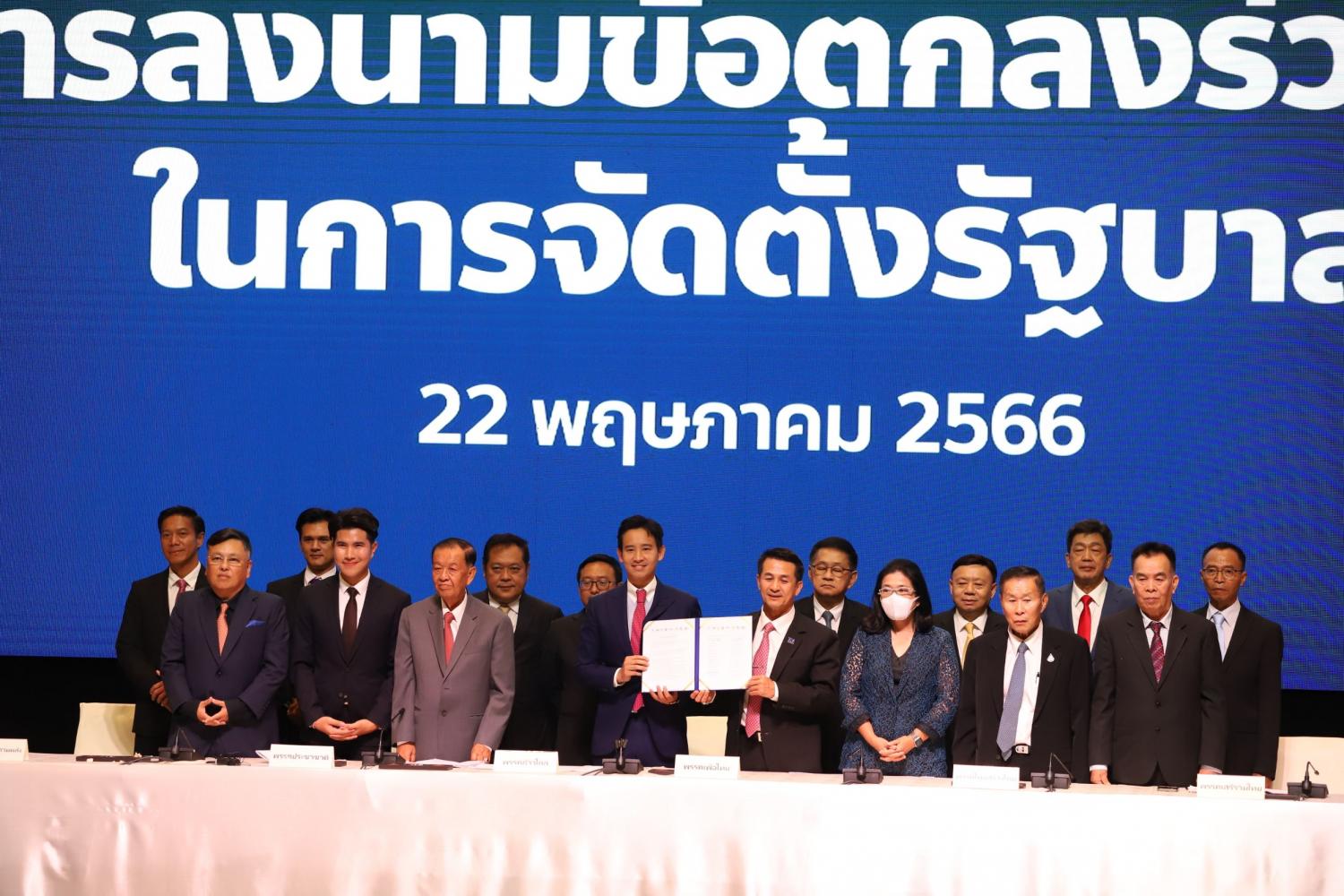
RECOVERY FALTERING
Since China's reopening in early 2023, the global economy was projected to improve significantly, said Asia Plus Securities (ASPS).
"However, since February China's economy has not recovered significantly as expected because economic stimulus has not been powerful enough and there are many problems, especially in the real estate sector," the brokerage said in a report.
Major banks downgraded China's 2023 GDP growth forecast, with Goldman Sachs cutting its outlook from 6.0% to 5.4% and UBS slicing its projection from 5.7% to 5.2%.
"China's economic recovery is slowing, so Beijing is pushing forward stimulus measures in the second half," ASPS noted.
China's crude oil demand this year is expected to increase 3.5% to 740 million tonnes, slower than the March forecast of 4.5% growth, according to the research arm of the China National Petroleum Corporation.
To stimulate economic activities, China's central bank recently cut interest rates, while state officials are discussing plans for infrastructure stimulus and loosening property market restrictions.
In early June, China cut deposit rates and lending rates to increase demand.
Later, the People's Bank of China cut one-year and five-year loan prime rates by 0.10% to 3.55% and 4.2%, the first decline in 10 months.
"China's stimulus measures are projected to improve not only the Chinese economy, but also the global economy," ASPS said, with the sectors projected to benefit tourism and hotels, rubber, electronics, energy and petrochemicals, food and beverage, construction, property development and leasing.
On Wednesday, China unveiled a 520-billion-yuan ($72.3 billion) package to increase sales of EVs and other green vehicles over four years to prop up softening auto demand, sending shares of automakers sharply higher.
The package, widely expected after an earlier government pledge to promote the industry, comes as softening sales in the world's biggest auto market raised concerns over economic growth, which is losing momentum after a brisk start to the year.
"New energy" vehicles purchased in 2024 and 2025 are exempted from purchase tax of up to 30,000 yuan per vehicle, with the exemption halving for purchases made in 2026 and 2027.
"These measures are not new, but we expect they will increase confidence about the automotive market in China," said Krungsri Capital Securities (KCS).
KCS strategists say Beijing's automotive stimulus measures should help Thai stocks in the electronics, auto parts and rubber manufacturing sectors. These include Sri Trang-Agro Industry Ord Shs (STA) and North East Rubber (NER), both of which supply half of their output to China's auto market.
Electronics companies such as Delta Electronics, KCE Electronics and Hana Microelectronics are expected to see improvements in their exports to China, KCS added.
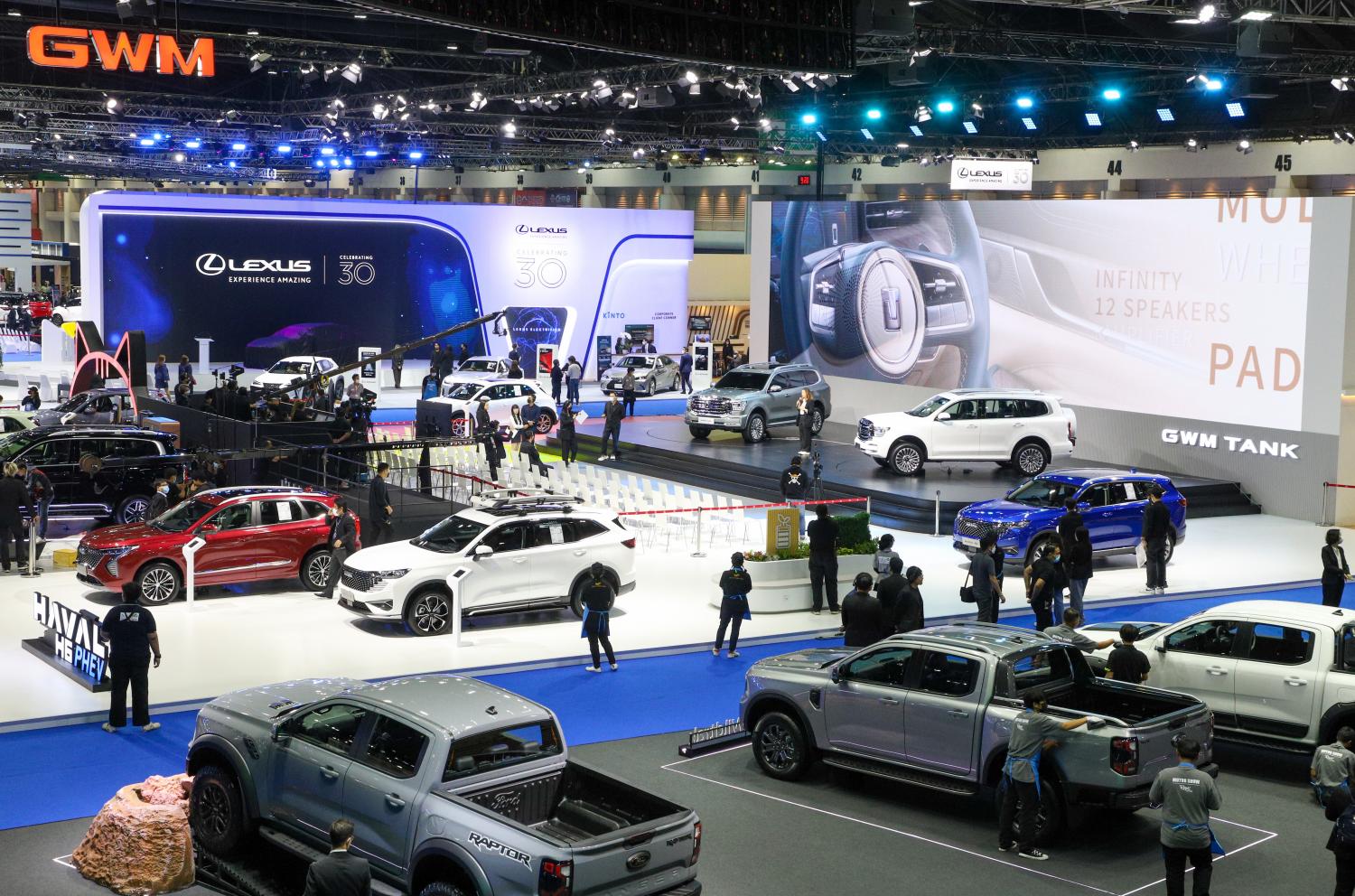
POSITIVE AND NEGATIVE
If China and the US decide to implement a decoupling policy from each other's supply chains, the decision will have both positive and negative impacts on Thailand, said Chaichan Chareonsuk, chairman of the Thai National Shippers' Council.
In terms of positive impacts, it could lead to higher investment to set up production bases in Thailand, especially for companies relocating production bases from China and the US, including those utilising advanced technologies, he said.
Thailand's comprehensive supply chain capabilities, from upstream to downstream, in various industries such as rubber, automotive, electronics, textiles and food, make it an attractive option, said Mr Chaichan.
"Thailand has the opportunity to increase exports of computers, air conditioners, smart products and EV parts, benefiting from a highly skilled workforce focused not only on assembly, but also on design capabilities," he said.
"But Thailand is not the only country that stands to gain advantages from an economic cold war between the US and China. Other economies in Asean can also benefit from the relocation of production bases and changes in the global trade structure."
Mr Chaichan said rising protectionism poses another challenge.
Although free-trade agreements can be used to reduce tariffs, more non-tariff barriers may be introduced, he said. Transport and logistics have become more difficult because of such barriers, which could lead to a decline in overall international trade.
Mr Chaichan advised business owners to improve production processes by focusing on automation to reduce reliance on labour and lower production costs.
This shift will enable cost competitiveness and attract foreign investment, he said.
"Thai business owners need to study emerging global regulations and adapt to changing rules. The global economy may face new regulations as major powers attempt to establish rules between countries, such as technology transfers and data movement," said Mr Chaichan.
"If Thailand fails to adapt to new regulations in a timely manner, it may incur higher business costs or even lose significant markets in severe cases."
SUPPLY CHAIN DIVERSITY
In addition, Thai entrepreneurs are urged to increase the diversity of their supply security and regionalisation to reduce the risk of supply chain disruptions amid geopolitical uncertainties such as trade barriers and conflicts between countries, he said.
Governments and business owners may need to consider sourcing raw materials from suppliers in regions with greater diversity to reduce supply chain bottlenecks, said Mr Chaichan.
This change may involve restructuring production systems to focus on output and inventory management that is sufficient for trade conditions, he said. The demand for products from buyers may fluctuate over time, said Mr Chaichan.
He also suggested Thailand accelerate its efforts to attract foreign investment, taking advantage of the trend of production base diversification away from China and the US.
Thailand will face increased competition on this front, especially from neighbouring countries and US allies in Latin America.
"Thailand should implement direct foreign investment measures tailored to attract specific industries, particularly in the electronics and technology sectors. It should also rapidly upgrade its industries to adapt to emerging technologies and increase the skill level of workers, especially in high-skilled areas," said Mr Chaichan.
"These efforts should add value to the global supply chain and create opportunities for exports.
"Thailand should also speed up attempts to export substitute products for countries that have conflicts, such as exporting electrical appliances and electronic devices, automobile tyres, automotive components, wood-related products and furniture, plastics and apparel to the US as an alternative to imports from China."
More importantly, in order to grab increasing opportunities in the global market, he said Thailand needs to prepare its supply chain, including improving the skill level of the workforce, upgrading infrastructure and government-driven efforts to promote and support the electrical and electronics industry, which is growing rapidly.







